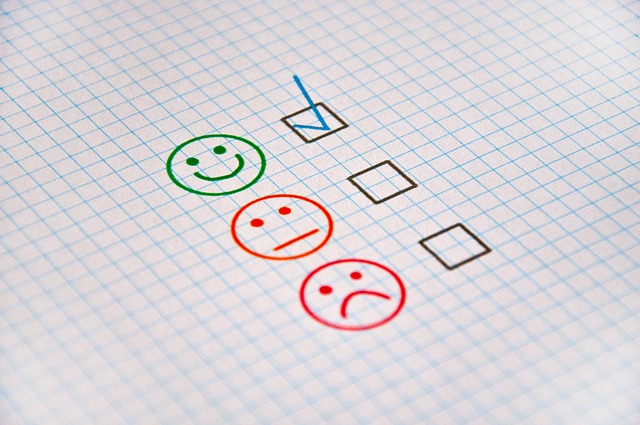There is a growing consensus around what we need for self-healing and this convergence is supported by neuroscience and scientific research into the process of aging. In a recent HEAL Summit, international holistic health expert Danette May presented her insights gained through her traumatic life experiences and her journey to international success – a journey she has mapped through her book, The Rise: An Unforgettable Journey of Self-Love, Forgiveness and Transformation.
The HEAL Summit is produced by Hay House and the free presentations and resources are offered over one week by more than 30 experts in holistic health. The presentation by Danette May covered the topic, Self-Love Rituals to be Happier and Healthier Now. Her recipe for success in life involves healing foods, healing movements and a healing mindset. Fundamentally, it entails self-love expressed through self-caring activities undertaken regularly to achieve wellness.
The rise from depression
Danette suffered severe depression and grief following her failed marriage and the death of her infant son. Her story is one of achieving transformation in mind, body, and heart. She became a best-selling author, leading expert in developing a healthy lifestyle, creator of a highly successful international business and a significant influencer through her social media presence and speaker engagements. She was featured in the life-affirming documentary, WeRiseUP, which exhorts people to connect and take action to make a difference in their sphere of influence, whether in education, work, or the community. Danette’s suggested approach represents an integrated, holistic way to achieve self-healing.
Healing foods
One of the world’s leading experts on aging and healthy living, David Sinclair, who is author of Lifespan, confirms through his research and that of his colleagues that what we eat, as well as how much we eat, has a major influence on our quality of life and longevity. Danette contends that if we remove certain foods from our diet and include other more beneficial foods, the “wiring in our brain will change”.
Danette’s recommendations re healing foods include the following things to avoid:
- White sugar – because of its toxicity for mind and body.
- Gluten – causes inflammation in the whole-body system, including the brain (individuals may have more visible symptoms than others from these inflammatory effects, e.g., skin problems, headaches and/or digestive issues).
- Oils such as canola or vegetable oils (olive oil is widely recommended as a substitute).
Her recommendations re what to eat include:
- Avocados – identified by the Mayo Clinic as the superfood of the month.
- Blueberries
- Leafy green vegetables
- Fish
- Nuts
It is interesting that these latter foods are among the 10 superfoods identified by the Harvard Medical School as sources of a healthy diet. Danette elaborates on her healing foods recommendations in her abovementioned book. She has also published another book focused on recipes that are gluten-free and vegan friendly and provide a welcome resource for those who are trying to move away from mainstream consumption to a more healthy diet. In essence, she encourages us to be more mindful of what we eat and knowledgeable about its effects on our body and mind.
Healing movements
Danette identified inertia as one of the problems associated with depression and grief. She strongly encourages movement particularly walking and maintains that movement is the quickest way to change your mental state. Walking releases emotions and assists clarity in your thinking. Danette especially advocates walking bare feet in nature as this enables you to become grounded.
Healing mindset
Neuroscience research supports the view that positive thinking leads to better health outcomes, both bodily and mentally. In line with her philosophy of small movements towards a goal, Danette recommends the use of personally appropriate affirmations for thirty seconds to one minute, at least each day. Affirmations reinforce what is good in ourselves and helps to supplant “unconscious negative beliefs”. What we focus on mentally becomes our new reality, our new mindset and perspective on the world.
Daily rituals of self-love and self-care
Danette suggested a wide range of daily practices that if maintained can create a ritual – a regular practice of a particular group of activities . Here are some of them:
- Spend time in nature
- Write a gratitude journal – writing can release self-limiting beliefs/negative self-stories, increase our self-awareness, and build a positive outlook through appreciating what we have. You can reflect on where you are with your partner, family, career, life purpose or finances and appreciate the positive influences and influencers in your life.
- Eat something green and leafy
- Practise meditation, however briefly – even, for example, taking a few mindful, deep breaths.
- Read inspiring success stories that provide the motivation to realise, and exercise, your own power to make a difference in your arena of influence.
- Walk for health and wellness.
Overcoming procrastination
We can be full of good intentions to develop a daily ritual or to undertake something significant. If we delay through procrastination, we enable our negatively biased brain to think up all the reasons why we should not proceed. Danette suggests that we have 17 seconds to take action before our self-sabotaging thoughts take over. Like Seth Godin, she suggests that you start small – begin with some step towards your goal, however small.
Self-forgiveness and forgiving others
Anger and resentment over our sense of personal hurt by another can only consume us and damage us physically, mentally, and emotionally – we can experience physical pain, unhealthy self-absorption, and emotional stunting. Danette suggests that self-forgiveness and forgiving others is like “cutting the rope” – releasing yourself from negative emotions that hold you back. She herself had developed a daily ritual of saying, “I forgive you, I love you”, to overcome her resentment towards her former partner – the process took five years! Louise Hay offers a very pertinent affirmation for forgiveness, “As I forgive myself, it becomes easier to forgive others”.
Professional support
Sometimes our self-sabotaging behaviour becomes entrenched and difficult to shift. It is times like these that professional help can provide the impetus to move forward. Danette provides a range of services to assist anyone to make the necessary shift to achieve overall wellness and happiness:
- 3-day emotional detox – to work with people where they are currently at.
- 30 days challenge
- 6 weeks premium coaching to identify self-sabotaging behaviour, develop a positive mindset and take the first steps towards personal recovery and making a difference in the world.
Reflection
There can be a lot of things and experiences holding us back from realising our true potential. The starting point is awareness – followed by deciding what we want to be different in our lives. Daily rituals including meditation can help us to move forward and actively engage with what is holding us back. As we grow in mindfulness through our rituals and daily mindfulness practices, we can develop profound self-awareness, a strong motivation to make a shift and the courage and creativity to realise our life purpose.
_________________________________
Image by dae jeung kim from Pixabay
By Ron Passfield – Copyright (Creative Commons license, Attribution–Non Commercial–No Derivatives)
Disclosure: If you purchase a product through this site, I may earn a commission which will help to pay for the site, the associated Meetup group and the resources to support the blog.

